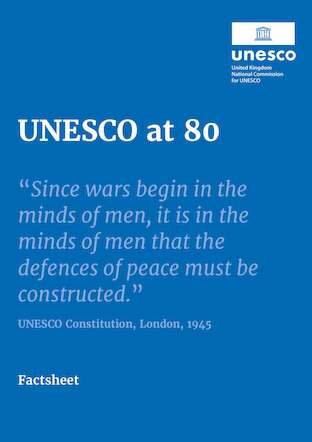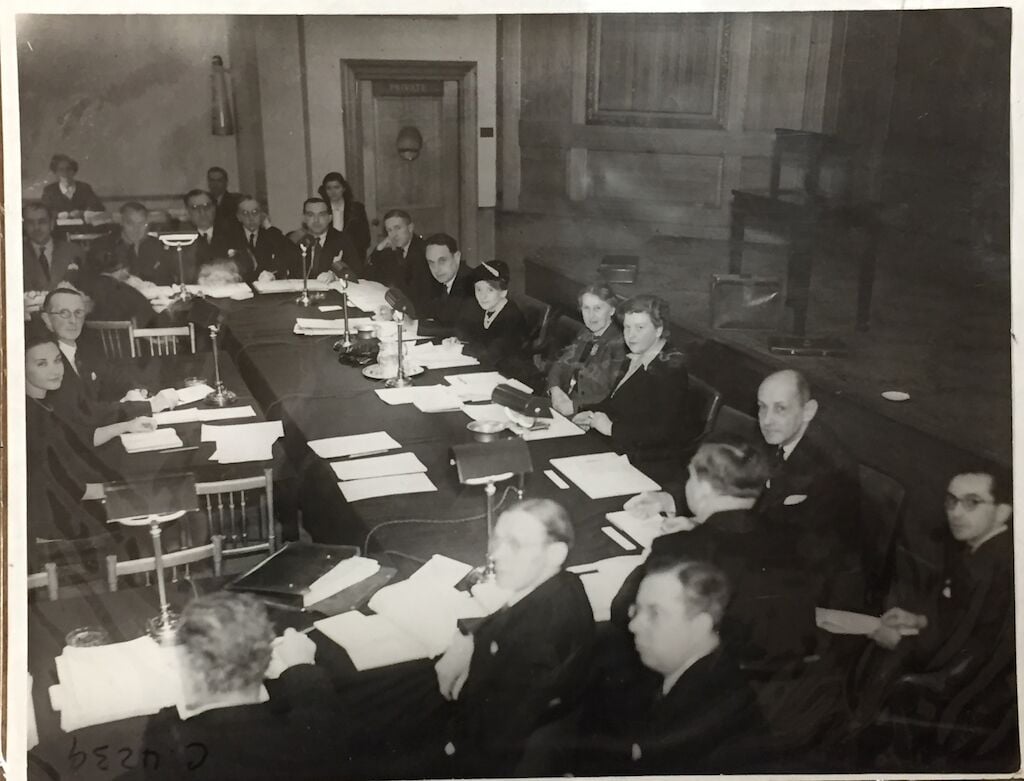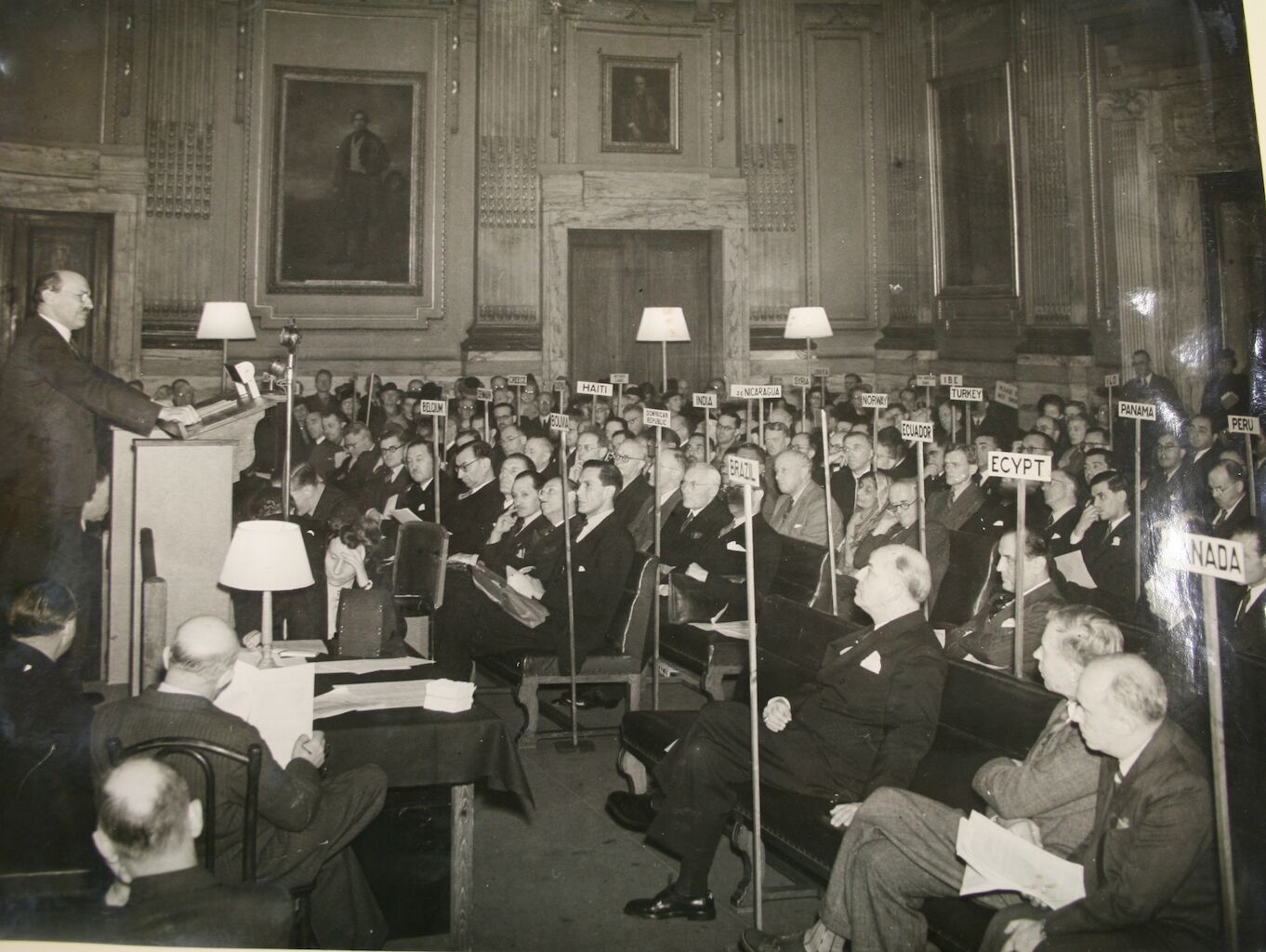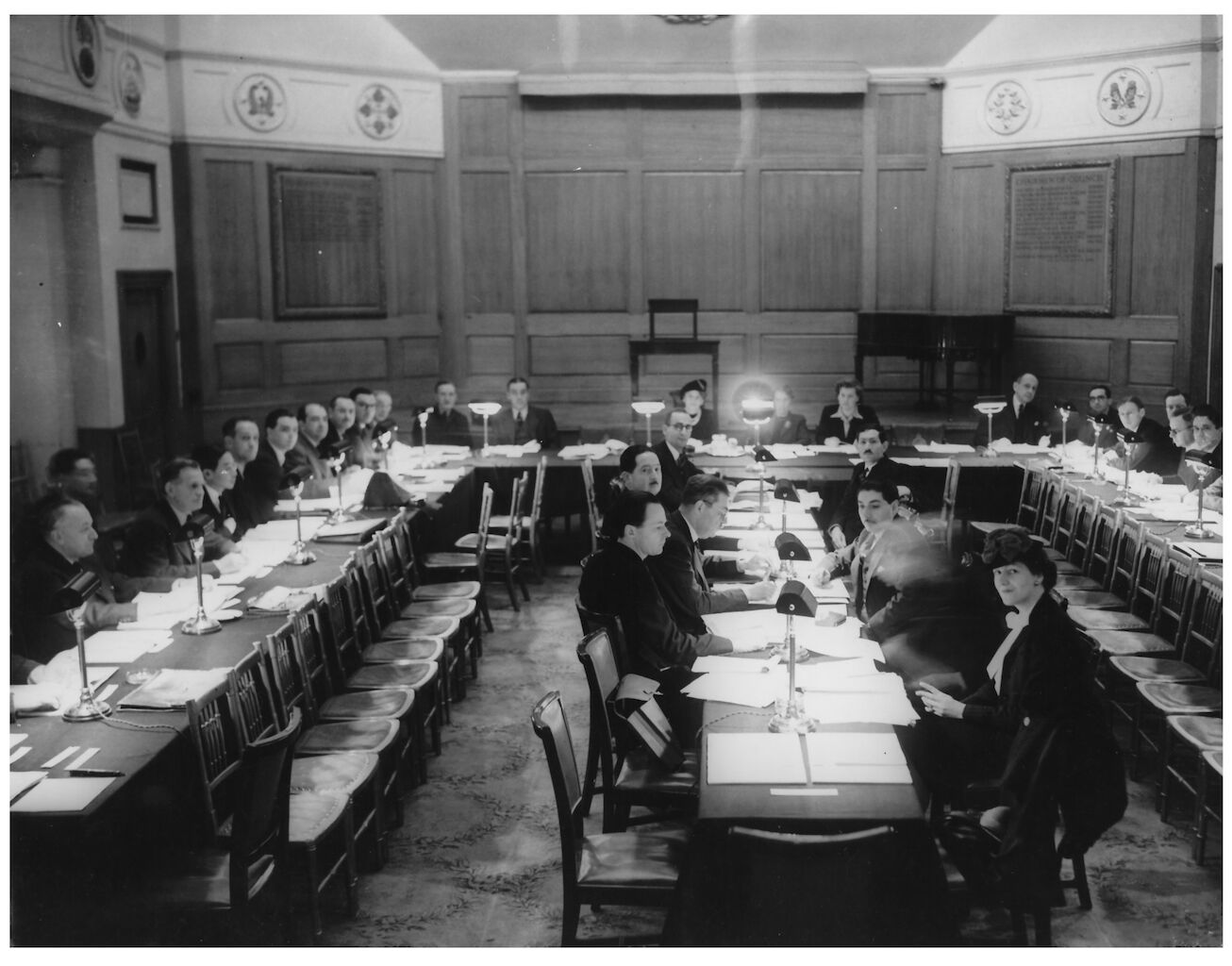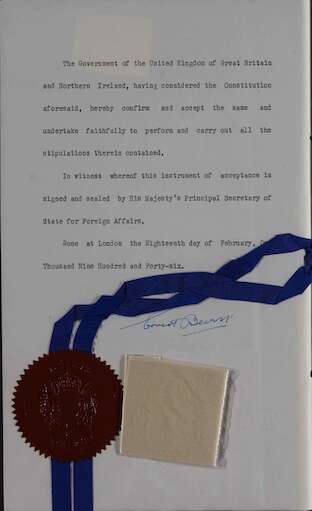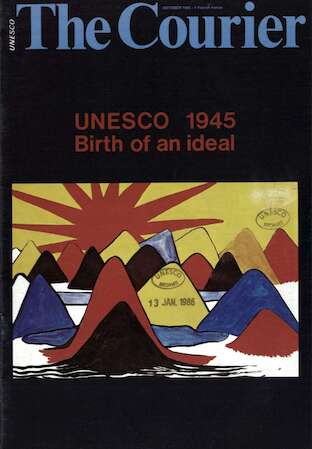(Watch the moment that UNESCO was declared by Education Minister, Ellen Wilkinson, in London 80 years ago today.)
Today (16th November 2025) marks the 80th anniversary of the founding of the United Nations Educational, Scientific and Cultural Organisation (UNESCO) in London.
Born directly from the lessons of the Second World War, UNESCO was created to build peace through international cooperation in education, science, culture, and communication. Meeting at the Institute of Civil Engineers in Westminster in November 1945, representatives of 44 nations agreed that lasting peace must be built not only through political and military means, but through understanding and collaboration among peoples. The UK ratified UNESCO’s Constitution in February 1946, and the Organisation came into force later that year.
Eighty years on, UNESCO remains a vital part of the international system, leading global efforts to promote quality education, protect cultural and natural heritage, advance scientific cooperation, safeguard freedom of expression, and promote ethical standards in emerging technologies. The UK continues to play an active role across all these areas, from its 60+ UNESCO sites and cities to its world-leading universities, experts, and institutions that contribute to UNESCO’s global agenda.
Anna Nsubuga, UK Ambassador and Permanent Delegate to UNESCO, said:
"As we mark 80 years of UNESCO, we are also honouring the extraordinary work being led today and over the last 80 years by the UK’s UNESCO sites, programmes, experts and practitioners. Their contributions, from safeguarding culture, nature and heritage to advancing science and promoting education, creativity and sustainability, are at the heart of the UK’s engagement with UNESCO.
By sharing ideas, knowledge and innovation with partners across the globe, these networks not only showcase the UK’s strengths, but also build the trust, cooperation and long-term partnerships that UNESCO was created to inspire."
James Bridge, Chief Executive and Secretary-General of the UK National Commission for UNESCO (UKNC), said:
"UNESCO was founded in London amid the ruins of war, as nations came together to build peace through knowledge and understanding. Eighty years later, that vision is as important and inspiring as ever. The UK's UNESCO network, from World Heritage Sites to Biospheres, Creative Cities, and UNESCO Chairs, shows how international cooperation can begin in local places, and how peace can be built not only between governments, but between individuals, communities and cultures.”
Professor Anne Anderson, Chair of the UK National Commission for UNESCO, said:
"In its 80th anniversary year, UNESCO continues to demonstrate its value locally, nationally and globally. It inspires action in communities across the 60+ UNESCO sites in the UK; it encourages innovations like the UNESCO Scotland Trail; and showcases academic excellence in our UK universities via UNESCO Chairs in issues like blue ocean governance, artificial Intelligence, water science, and multi-hazard risk reduction.
The UK continues to play its role at the heart of multilateralism - creating global networks, opportunities, understanding and cooperation"
UNESCO's founding in London
UNESCO was founded in London on 16 November 1945, when representatives of 44 nations met at the Institute of Civil Engineers to create a new organisation dedicated to building peace through education, science, culture and communication. The idea had emerged three years earlier in wartime London, where the UK convened the Conference of Allied Ministers of Education (CAME) amid the Blitz and the presence of multiple governments-in-exile. Led initially by Rab Butler MP and British Council Chair Sir Malcolm Robertson, and later chaired at the 1945 founding conference by Ellen Wilkinson MP, this cross-party British initiative recognised that lasting peace required more than military victory - it required understanding between peoples.
At the opening of the founding conference, Ellen Wilkinson MP, then Minister of Education and President of the Conference, delivered a speech that still resonates. She urged delegates to “clear the channels through which may flow from nation to nation the streams of knowledge and thought, of truth and beauty which are the foundations of true civilisation.” Her words set the moral tone for UNESCO’s creation and continue to define the Organisation’s mission eight decades later. A video of her historic address, a moment that set the moral tone for UNESCO’s creation, is available above. The full official minutes of the meeting are available here.
The UK ratified UNESCO’s Constitution in February 1946 (available below), and later that year Julian Huxley became UNESCO’s first Director-General, reflecting Britain’s intellectual leadership in shaping the new organisation.
Eighty years on, UNESCO remains central to the international system, and the UK continues to play a leading role across its global programmes and networks.
UNESCO in the UK Today
The UK is home to a diverse portfolio of UNESCO designations, places and networks that embody UNESCO’s global mission at a local level. There are over 60 UNESCO-designated sites and cities, including World Heritage Sites, Global Geoparks, Biosphere Reserves and Creative Cities. Collectively, these designations cover around 15% of the UK’s land area and are home to between nine and ten million residents.
Designations such as Learning Cities, UNESCO Associated Schools and UNESCO Chairs and UNITWIN networks and dozens of experts ensure that education, science and culture remain central to the UK’s global engagement, fostering international cooperation and knowledge sharing among institutions worldwide.
UNESCO status helps sites attract funding, tourism and partnerships, adding over £151 million in extra revenue each year. These places also strengthen local identity and pride, support education and volunteering, and foster international collaboration. They serve as custodians of cultural and natural heritage and as catalysts for cultural, environmental, social and economic renewal.
UNESCO designations serve as one of the UK’s most effective and values-driven instruments of international influence – rooted in local places, powered by global exchange, and built on mutual respect. They illustrate that in a time of complex global competition, the UK’s enduring strength lies not only in what it can show the world, but in the partnerships it builds with it.
Explore
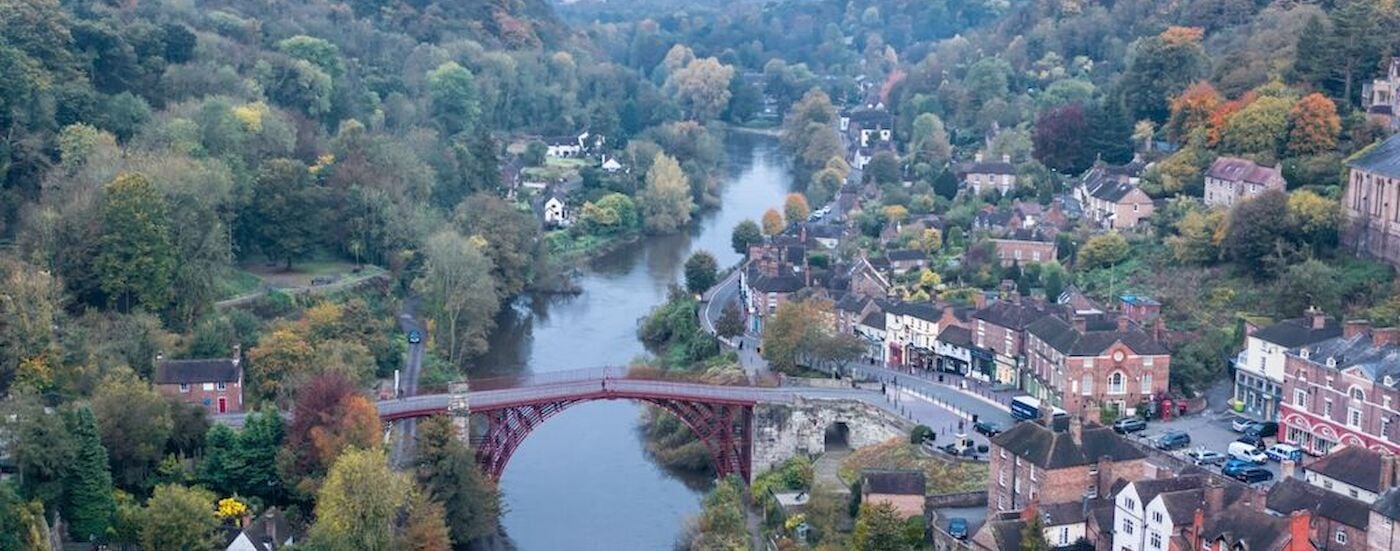
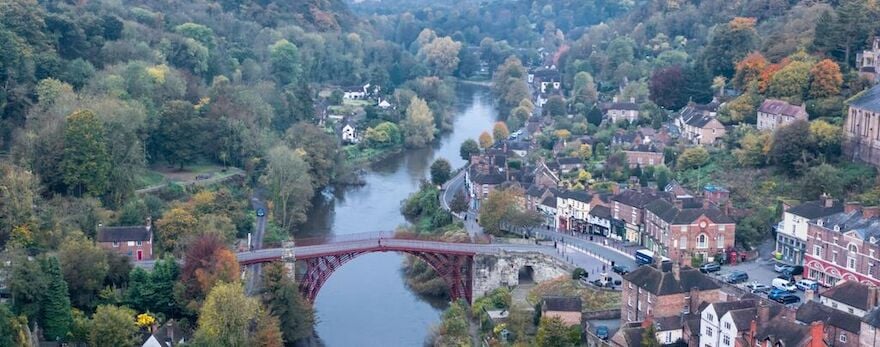
UNESCO sites in the UK
Discover the full range of UNESCO sites and programmes in the UK in our interactive map.
Find out more